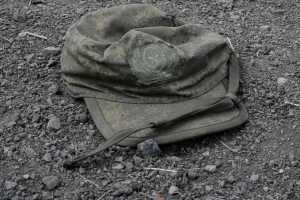
Kremlin unfazed by Trump’s ultimatum remarks
Putin’s press secretary Dmitry Peskov stated that the Kremlin found nothing new in Trump's statements and is waiting for signals from Washington regarding equal cooperation
The press secretary of the Russian leader, Dmitry Peskov, reacted rather calmly to the ultimatum-like tweet by the new U.S. president. Donald Trump had threatened Russia with new sanctions if Putin did not agree to a swift end to the Russia-Ukraine war. Trump stated that he was doing Russia a favor by proposing to end the war, given the destructive processes occurring in the Russian economy.
Peskov noted that the Kremlin saw nothing new in Trump’s statements, as he was known during his first term in the White House for being quick to impose new sanctions. He added that Moscow continues to wait for signals from Washington about equal cooperation, but such signals have yet to arrive.
This statement from the Kremlin’s press office contradicts Trump’s own claims that preparations for his phone call or even a meeting with Putin would begin within the first days of his presidency. Mike Waltz, Trump’s nominee for National Security Advisor, also mentioned the possibility of such contact happening in the coming days or weeks.
However, it can now be stated that the Kremlin outright denies any Russian-American contacts that could have led to organizing a meeting between the two presidents or even a phone conversation. It is also evident that they are not responding to Donald Trump’s statement threatening harsher sanctions and tariffs against Russia if Putin does not agree to end the Russia-Ukraine war. Nonetheless, this reaction from the Kremlin is expected.
As is known, the first sanctions against Russia were imposed back in 2014 following the annexation of Crimea. This, as we know, did not stop Putin from continuing his undeclared war against Ukraine and launching aggressive actions in eastern Ukraine, despite then-U.S. President Barack Obama's calls for Putin to refrain from destabilizing mainland Ukraine and threats of further sanctions.
When Russia launched a new phase of its war against Ukraine in 2022, with Putin aiming to seize Kyiv and establish a puppet government in the Ukrainian capital, the U.S. and other Western states imposed much tougher sanctions on Russia, described in advance as "sanctions from hell." These measures were expected to stall the Russian economy's development and potentially lead to its rapid collapse.
However, this did not happen for the simple reason that Washington and European capitals underestimated the influence of the economies of the Global South, particularly China and India. These countries became the largest buyers of Russian energy resources, helping Putin endure the confrontation with the West and embark on the difficult process of transitioning Russia's economy to a wartime footing, enabling it to survive a protracted war of attrition with Ukraine and confrontation with the U.S. and other Western nations.
Before Donald Trump won the U.S. presidential election, I had asked what tools he planned to use to compel the Russian leader to end the Russo-Ukrainian war and how these tools would fundamentally differ from those available to his predecessor, President Joe Biden. At the time, there was no answer to this question. Clearly, I wasn’t the only one awaiting an answer — Putin was, too.
Now, in essence, we have that answer. Donald Trump has no new tools. The new U.S. president can only threaten a tougher sanctions policy, which Biden would likely have adopted if he had remained in the White House, or which Kamala Harris might have considered had she won the presidential election and become the new leader of the United States.
Nothing extraordinary or uniquely tied to Trump's personality has occurred for Russia since his election as president. And this is not something to hold against Trump — he was elected as the President of the United States, not a magician. The U.S. president's ability to influence the global order, or even the economy, is more limited now due to the growing economic roles of China and India than it was when Trump first won the presidency. This is a reality the new American leader will have to come to terms with in the coming months and years of his term in the White House.
This means that to force Putin to end the Russian-Ukrainian war, at least during Trump’s term, new, far more serious, aggressive, effective, and risky measures for the U.S. and the West are required.
Sanctions and tariffs alone will not resolve the situation. What is needed is a global economic confrontation between democracies and dictatorships. A trade war by the U.S. not only with China but also with India, demanding they cease purchasing Russian oil to deprive Russia of its energy revenues. A readiness by Western countries to unilaterally admit Ukraine into NATO, thus presenting Russia with the threat of nuclear war, including the potential use of strategic nuclear weapons in the event of a confrontation between Moscow and Washington. These are undoubtedly highly risky and dangerous measures.
However, the alternative to these risky and dangerous measures is a prolonged war in Europe, which, in one way or another, will spread in hybrid forms to other European countries. The alternative is the growing geopolitical influence of China if the Global South sees that Trump's America is just as unwilling to take risks in its attempts to end wars and conflicts as Biden's America, Obama's America, and even Trump's first-term America in the White House.
Regrettably, without risk and bold, decisive actions, the West is doomed to watch a protracted war that will inevitably impact its own security.
About the author. Vitaly Portnikov, journalist, laureate of the Shevchenko National Prize of Ukraine.
The editors don't always share the opinions expressed by the blog authors.
- News












































